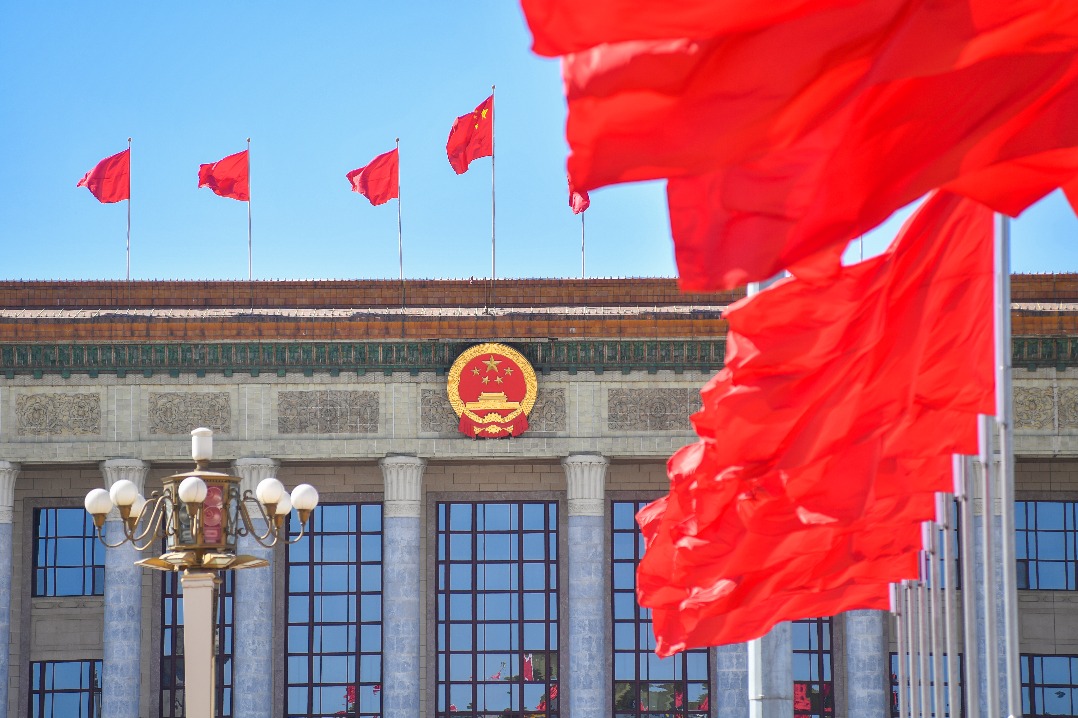Education shapes ties, APEC experts stress

The Asia-Pacific region should become not just a collective of economies, but a community where young people can grow and build a prosperous future together, experts from Asia-Pacific Economic Cooperation economies said.
Noting the pivotal role of education in shaping regional cooperation and global progress, they said the future of APEC's educational development hinges on how to ensure equitable access to education for all young people, how to better harness technology for societal advancement and how to foster consensus amid cultural diversity.
Education should not merely serve economic growth; it must facilitate sustainable social development and the common progress of humanity, the experts said at the APEC Education Forum held in Beijing on Friday.
Ni Haidong, Party secretary of Beijing Language and Culture University, noted that APEC has long been a model of regional collaboration, extending beyond shared markets and resources to include shared ideals and responsibilities.
Highlighting the foundational role of language and culture, Ni, whose university has trained over 300,000 international students from 189 countries and regions, described language as key to communication and a gateway to civilizational understanding.
He noted that combining language education with a humanistic spirit and technological innovation creates a new educational paradigm, enabling more open learning, equitable exchange and sustainable cooperation.
Ni identified the younger generation as the main force driving global peace and development.
"The youth, with their creativity, global awareness, and social responsibility, are the best answer to future challenges," he said.
He stressed the need for education to equip young people with cross-cultural understanding, digital literacy and a sense of shared humanity to help them navigate globalization and digitalization.
In a rapidly evolving world, individuals and societies must cultivate key qualities to navigate unprecedented change, according to Jesus Seade, Mexico's ambassador to China.
Seade said technological advancement is driving exponential change across all aspects of life, far outpacing humanity's linear adaptation. While believing technological change is ultimately beneficial, he noted the risk of individuals being left behind, saying that the need for reskilling is a continuous challenge not limited to the present decade.
He illustrated that professionals such as doctors and engineers now face the increasing necessity to completely renew their knowledge base years after university, predicting that people in their mid-careers may soon find their formal education largely outdated for their jobs.
To navigate this new era, Seade highlighted three essential qualities for the future generation: open-mindedness, a global perspective and curiosity.
Open-mindedness involves actively seeking out, understanding and seriously considering alternative viewpoints and explanations, moving beyond passive tolerance, he said.
A global perspective means understanding one's place in an interconnected world, as challenges and opportunities are increasingly defined at the global level, he said.
Seade described curiosity as the fundamental driver of human progress. Educational institutions must nurture this innate trait in youth, fostering a lifelong hunger for learning that extends far beyond formal studies.
Raul Diez Canseco Terry, former vice-president of Peru, underscored that education encompasses not only knowledge, but also digital communication, opportunities and the transmission of values across economies.
He emphasized that talent development is paramount in our globalized world, stating that digitalization is a key tool for shaping the future. He firmly believes education is the proven pathway to poverty alleviation and the reshaping of human civilization.
Yudil Chatim, education and cultural attache of the Indonesian embassy in China, pointed to the global educational challenges posed by the rapid development of artificial intelligence, big data and future technologies.
He stressed the necessity of international cooperation in education and vocational training to prepare a globally competent youth workforce.
He highlighted the crucial role of media as an "amplifier for the young", shaping narratives and connecting young people across regions. He advocated using digital media to showcase success stories of young innovators and collaborative opportunities within APEC to inspire the next generation, promote positive narratives of cooperation and ensure that stories of shared progress are widely disseminated.
Today's Top News
- Beijing hopes COP30 will address concerns of developing nations
- China, US seek to stabilize trade relations
- Li: CIIE a key bridge linking China, world
- Pacts epitome of South-South cooperation
- Dutch govt should act responsibly to resolve trouble of its own making: China Daily editorial
- Shenzhou XX crew's return trip delayed due to space debris risk






























